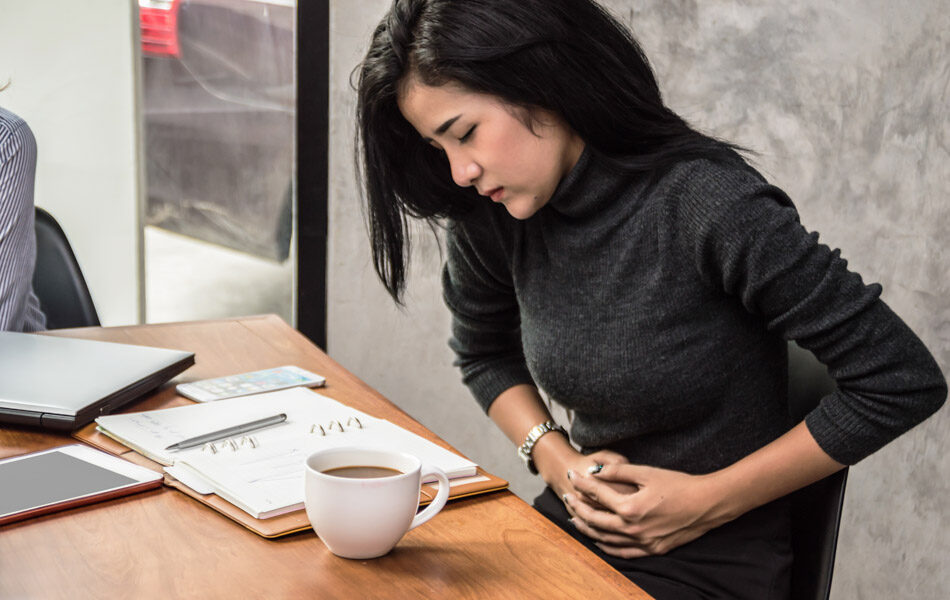Why Do Probiotics Cause Gas? Unraveling the Mystery
You might have started taking probiotics to ease gas and bloating, but now those same probiotics are causing more gas. This article explains why probiotics might trigger the very symptoms you were trying to beat.

People take probiotic supplements and consume probiotic foods to aid a ton of digestive problems. The dose of healthy bacteria can enrich your gut health while decreasing unpleasant symptoms like bloating, constipation, and diarrhea.
For many people, probiotics are the ideal solution to poor digestive health. So, you’re ready to say goodbye to gassiness, but what if you notice more gas after consuming probiotics? It sounds counterintuitive, but probiotics can result in more gas than usual.
Keep on reading to find out why this unwanted reaction might occur, how to alleviate it, and other possible side effects to prepare for.
Why Do Probiotics Cause Gas?
Although probiotics are beneficial bacteria, their sudden introduction can disrupt your gut’s current environment. They alter the gut microbiota, causing changes that may result in excess gas and bloating. Your body needs time to adapt to this new bacteria before it can flourish.
Fortunately, the extra gas is only temporary. Symptoms clear up within a few weeks for most healthy people. At this time, the probiotic bacteria are working to give you a balanced microbiome by increasing the good bacteria and decreasing the number of bad bacteria in your gut.
You need to be patient with probiotics in the beginning. Give it time to see noticeable results before giving up on these living microorganisms. If your flatulence doesn’t wear off after a few weeks, you might need another probiotic product with a different probiotic strain.
How Do Probiotics Work?
Probiotics are living bacteria that naturally live in your body. They work by restoring balance to the gut microbiome. Your gastrointestinal tract comprises good and bad bacteria, but an imbalance enables the bad bacteria to thrive. The consequences of this can cause poor digestive health and frequent discomfort in your gut.
These microbes are also thought to support immune system function. They regulate the function of your immune cells and produce protective bacteriocidal substances that block pathogenic bacteria, stopping them from causing disease.
How to Reduce Gassiness After Taking Probiotics
It’s not uncommon for probiotics to cause gas. As it is a temporary side effect, you can wait it out until your symptoms clear. Unfortunately, gas is painful, uncomfortable, and capable of disturbing daily life. So, you can try a few things to reduce gas after probiotic use.
You can start with a low dose. Smaller numbers of probiotics help your body adjust to the new bacteria more slowly. Instead of overloading your gut with good bacteria, the gradual effects might deter the sudden gas build-up in the large intestine.
Another point to consider is the contents of your probiotic supplement. Some contain common allergens, such as dairy and gluten. Gas and bloating are known symptoms of dairy, gluten, and lactose intolerance. You must choose probiotic supplements that cater to your dietary needs.
The same applies to the probiotic-rich foods you consume. Certain foods can cause an allergic reaction or adverse side effects. Fermented foods like kombucha and sauerkraut contain live and active cultures, which, while healthy, are known drivers of bloating and flatulence.
You could try other gut health hacks to improve your gut microbiome. Increasing your water intake, drinking herbal tea, consuming fiber-packed foods, eating slowly, and exercising regularly are tips for getting your gut bacteria back to healthy levels.
What Are the Other Side Effects of Probiotics?
Digestive woes are common complaints after using probiotics. As well as gas and bloating, you may experience constipation. Research suggests that constipation is more likely to occur in those taking yeast-based probiotics, along with increased thirst.
Other side effects may include headaches, upset stomach, cramps, and diarrhea.
Some probiotic strains can produce histamine inside the digestive tract. People with histamine intolerance have difficulty breaking down histamine, causing side effects that mimic an allergic reaction. You might get headaches, nasal congestion, and flushed or itchy skin.
In rare cases, patients taking probiotics developed fungemia, bacteremia, and endocarditis. Most research indicates that probiotics are safe, but individuals with an increased risk for infection should be cautious, such as those with a critical illness or weakened immune system.
Consult your doctor or dietitian if you are unsure how probiotics might affect your current health status. They might recommend certain probiotics with fewer side effects, or they may advise against probiotics entirely.
A Word From a Nutritionist
People take probiotics to boost their digestive health. It’s ironic that probiotics cause gas, bloating, and other issues with your digestive system. But these are usually early adverse reactions that soon subside as your gut microbiome adapts to the influx of new bacteria.
Taking a probiotic supplement can ease symptoms of irritable bowel syndrome, inflammatory bowel disease, and lactose intolerance, among other disorders. Although, people with an already sensitive gut can be more prone to developing excess gas in the first few weeks.
Supplements take time to work correctly. Don’t expect positive results immediately, but if you don’t notice progress or your symptoms remain or worsen, talk to your doctor. Your body might not agree with the particular strain, and you might need to try a new species.
Conclusion
Probiotic supplements can alleviate digestive symptoms, but this might not be the case in the early days. At first, they can unsettle the gut bacteria, producing extra gas than usual. Your body will gradually adapt as the probiotics create a healthy balance of good and bad bacteria.
In time, you can benefit from improved digestion and fewer episodes of gas, bloating, and diarrhea as the good bacteria work their magic.

















































 Select your language:
Select your language: 








